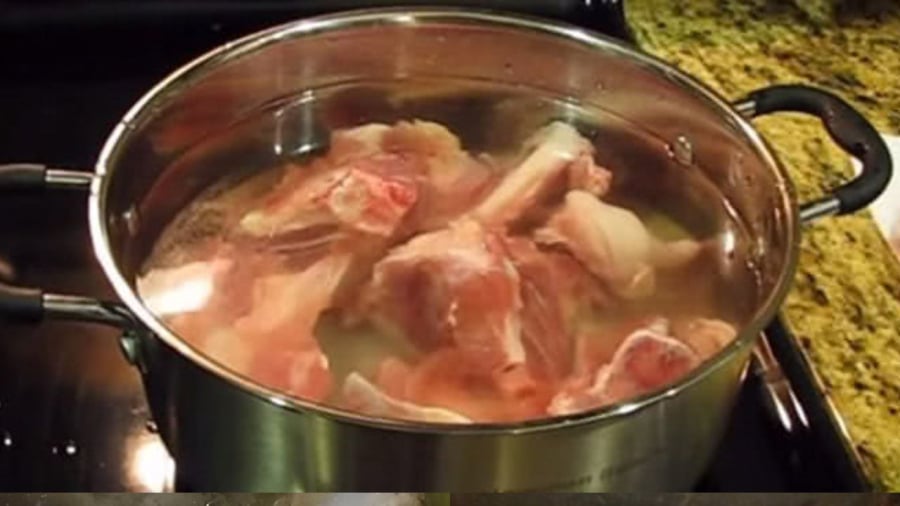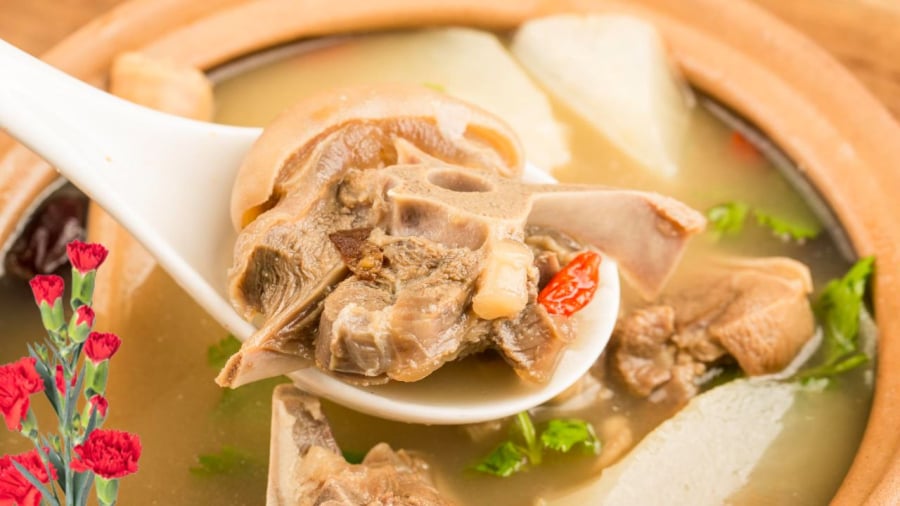The key to delicious bone broth doesn’t lie in lengthy boiling over high heat. Contrary to popular belief, such methods often lead to undesirable results, and renowned pho restaurant chefs have revealed a better approach:
Soaking bones in cold water is essential.
Freshly bought bones often have traces of blood and exposed marrow, so it’s crucial to soak them in cold water for 30 minutes to 2 hours. This process removes impurities and prevents the broth from becoming cloudy or malodorous. After soaking, rinse the bones before blanching.

Soaking Bones: A Critical Step
Blanching in cold water, not boiling water.
A common mistake is blanching bones in boiling water. Doing so causes the exterior to contract rapidly, trapping impurities and odors inside. Contrary to popular belief, blanching in cold water does not lead to nutrient loss, as significant loss only occurs with prolonged boiling or stewing. Place the bones in a pot of cold water and heat it up instead.
The importance of salt and alcohol.
Adding a small amount of alcohol and salt to the blanching water helps draw out unpleasant odors from the bones, especially those that have been frozen. Rinse the blanched bones before proceeding to the stewing stage.
For a fragrant and clear broth, add roasted ginger and onion.
After blanching, place the bones in a pot with cold water, adding roasted ginger and onion to enhance the aroma and sweetness of the broth while also keeping it clear.

Simmering Bones: Low and Slow
Simmer bones over low heat.
Initially, the heat can be high until the water boils, after which it should be reduced to a gentle simmer. Boiling bones over high heat causes rapid release of inorganic calcium, resulting in sour, unpleasant-tasting broth that may even emit a burnt smell. Simmering, on the other hand, gently coaxes out the nutrients from the bones.
Leave the lid off.
Covering the pot during stewing can make the broth cloudy. It’s best to leave the lid off or slightly ajar, and for this reason, a pressure cooker is not recommended for making bone broth.
Avoid seasoning with fish sauce, salt, sugar, or noodles during stewing.
Adding fish sauce, salt, sugar, or noodles while stewing bones is a definite no-no. High temperatures cause these ingredients to hydrolyze, leading to sour-tasting broth. It’s best to season the broth after cooking, just before serving.
Clarifying cloudy bone broth with egg whites.
If your bone broth turns out cloudy, simply whisk in some egg whites and heat it up. The egg whites will bind to the cloudy particles, and you can then strain them out, leaving you with a clear broth.

































